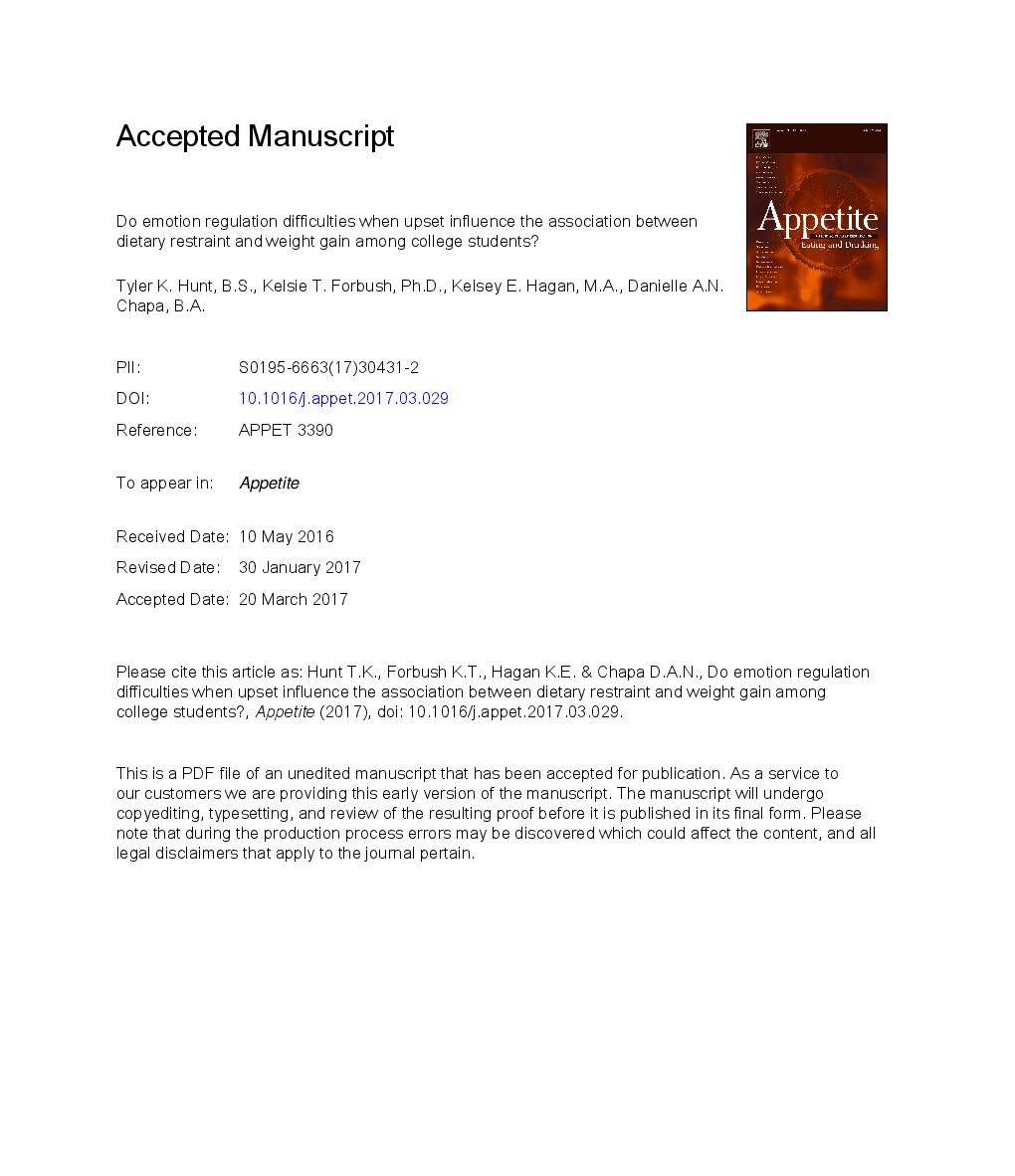ترجمه فارسی عنوان مقاله
آیا مشکلات تنظیم احساسات وقتی ناراحت می شوند که رابطه بین محدودیت غذایی و افزایش وزن در میان دانش آموزان کالج تاثیر می گذارد؟
عنوان انگلیسی
Do emotion regulation difficulties when upset influence the association between dietary restraint and weight gain among college students?
| کد مقاله | سال انتشار | تعداد صفحات مقاله انگلیسی |
|---|---|---|
| 120288 | 2017 | 41 صفحه PDF |
منبع

Publisher : Elsevier - Science Direct (الزویر - ساینس دایرکت)
Journal : Appetite, Volume 114, 1 July 2017, Pages 101-109
ترجمه کلمات کلیدی
فوری منفی، خوردن غذا، چاقی، تکانشی، تضعیف نظریه،
کلمات کلیدی انگلیسی
Negative urgency; Binge eating; Obesity; Impulsivity; Restraint theory;

